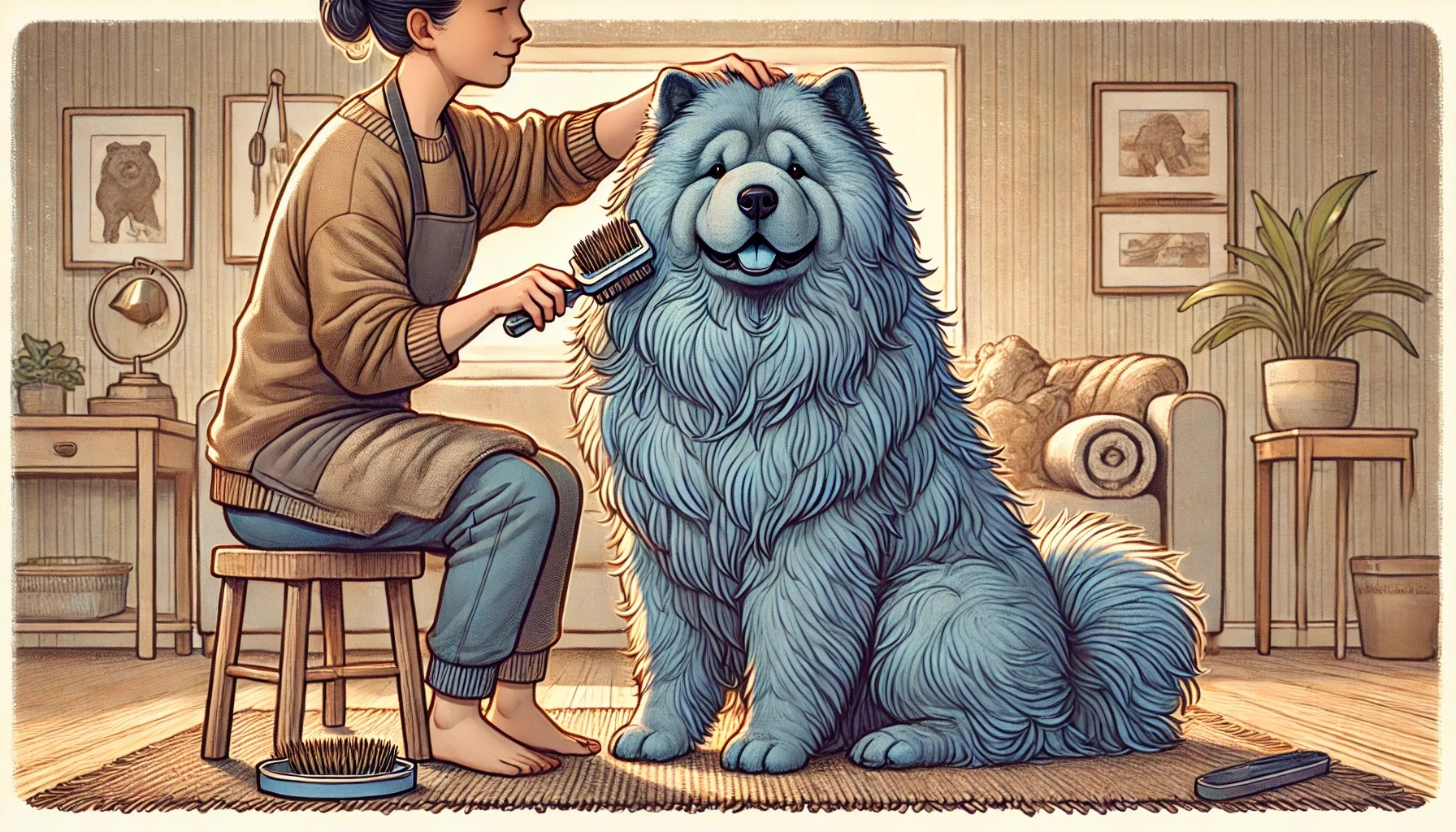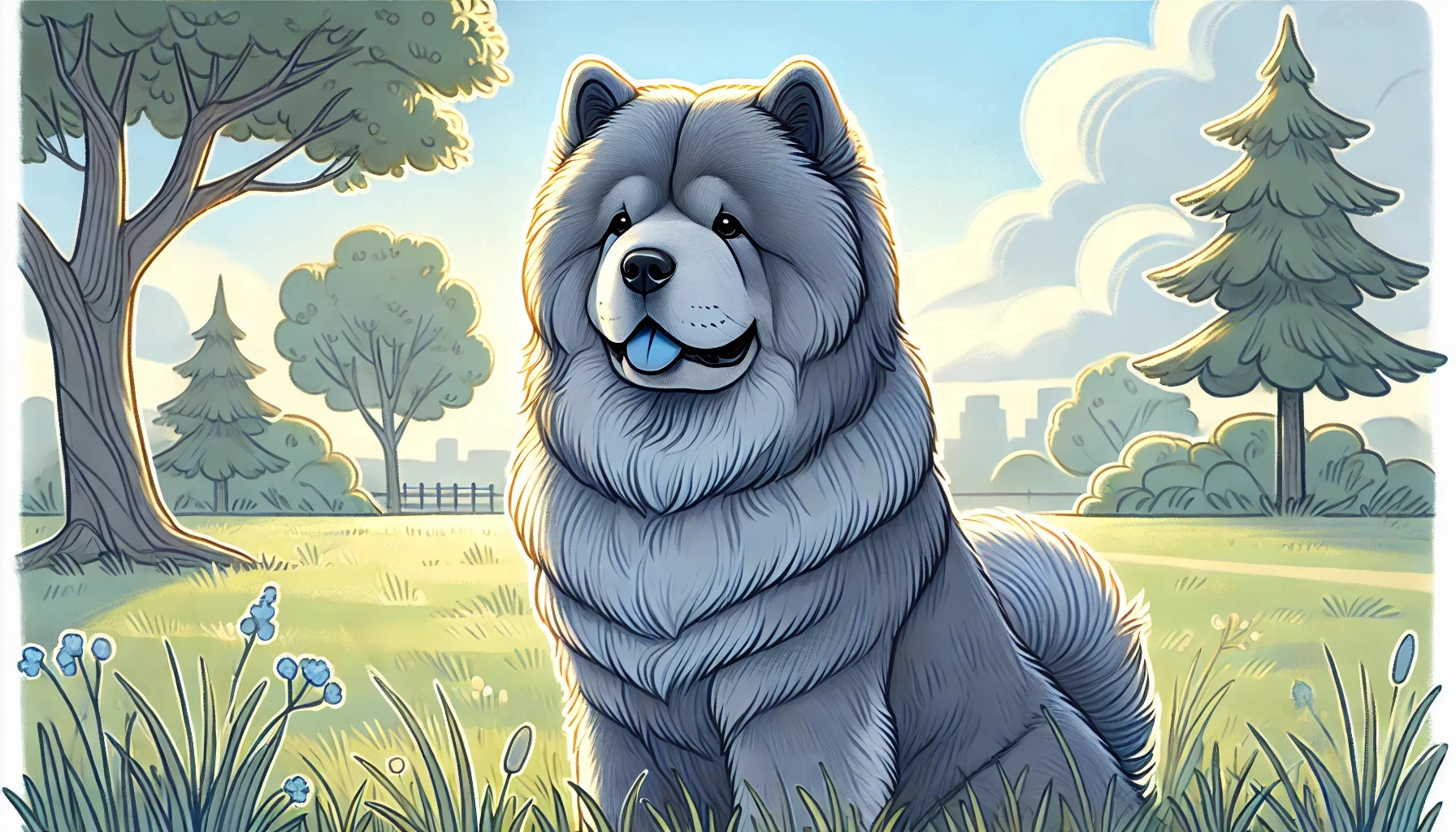On this page
Blue Chow Chow: What Is Difference?
The Blue Chow Chow is a rare and stunning variation of the Chow Chow breed, accounting for less than 5% of the Chow Chow population, and is most recognizable by its unique blue-gray coat. But how does this variety differ from other Chow Chows? Beyond their striking appearance, Blue Chow Chows have distinct needs in terms of diet, grooming, and temperament. These differences make them a fascinating choice for experienced pet owners who are ready to meet their specific care requirements.
Blue Chow Chows have unique dietary needs. Their coats require a diet rich in omega-3 fatty acids and vitamins like zinc and biotin to maintain their vibrant color and health. Additionally, their metabolism is slower than that of breeds like Siberian Huskies, meaning overfeeding can quickly lead to obesity.
Let’s explore everything that sets Blue Chow Chows apart and how you can best care for this rare breed.
Understand your Blue Chow Chow’s unique needs with Dosty App expert care tools.
What Makes Blue Chow Chows Special?
Blue Chow Chows are set apart by their blue-gray coat, a rare and genetically diluted version of the black Chow Chow. This coat is complemented by their signature blue-black tongue, a hallmark of the breed. Their thick double coat is more demanding to maintain than the coats of short-haired breeds like Boxers.
Behaviorally, Blue Chow Chows are known for their aloof and independent nature. They are loyal to their families but may be wary of strangers, which makes them excellent watchdogs. Compared to playful breeds like Golden Retrievers, they are reserved and dignified.
Recommendation from Dr. Alex Turner, Veterinary Geneticist: "Regular grooming and a high omega-3 diet can reduce shedding by up to 25% and improve coat health significantly." (Read more)
Next, we’ll examine their dietary requirements to help maintain their health and vibrant coat.
What Are the Dietary Needs of Blue Chow Chows?
Blue Chow Chows have specific dietary needs to support their coat, skin, and overall health. Their diet should include:
Omega-3 fatty acids from fish oil or flaxseed to maintain their coat’s shine and reduce dryness.
High-quality proteins to support muscle health and energy.
Vitamins and minerals like zinc and biotin to improve skin health.
Portion control is vital, as Blue Chow Chows are prone to obesity due to their slower metabolism. Compared to active breeds like Border Collies, they require 20% fewer calories.
Recommendation from Dr. Emily Carter, Canine Nutritionist: "Feed your Blue Chow Chow high-protein kibble with at least 25% protein content. Avoid processed treats that contribute to weight gain." (Read more)
Next, we’ll explore the temperament and behavior of Blue Chow Chows to understand their personality traits.
How Does a Blue Chow Chow Behave?
Blue Chow Chows are dignified and independent. They are not as playful as breeds like Labradors but form deep bonds with their families. While they are affectionate with loved ones, they are often aloof with strangers, which can make them excellent guard dogs.
Training a Blue Chow Chow requires patience and consistency. Their stubborn streak can make obedience training a challenge, but early socialization helps them adapt better to new environments and people.
Recommendation from Dr. Samuel Wright, Animal Behaviorist: "Begin training and socialization by 12 weeks to reduce territorial tendencies by 30%. Positive reinforcement works best for this breed." (Read more)
Next, let’s discuss the grooming routine necessary to keep a Blue Chow Chow looking and feeling their best.
Access training tips for your dog with Dosty App expert resources!
How Do You Groom a Blue Chow Chow?
Blue Chow Chows have a thick double coat that requires 3-4 brushing sessions per week. Brushing prevents matting, reduces shedding, and helps keep their coat shiny and healthy. During seasonal shedding periods, daily brushing is recommended.
Bathing should be done every 4-6 weeks using a mild, hypoallergenic shampoo. Over-bathing can strip the coat of its natural oils, leading to dryness and irritation. Regular nail trimming and ear cleaning are also essential for their overall health.
Recommendation from Dr. Olivia Hayes, Dermatology Specialist: "Use a slicker brush designed for double-coated breeds to manage shedding and prevent tangles. Consistent grooming reduces skin infections by up to 20%." (Read more)
Next, we’ll address the common health concerns associated with Blue Chow Chows.

What Are the Health Concerns for Blue Chow Chows?
Blue Chow Chows are prone to several health issues, including:
Hip dysplasia: Common in larger breeds, causing mobility issues over time.
Entropion: A condition where the eyelids roll inward, causing irritation.
Skin allergies: Their thick coat can trap allergens and moisture, leading to hot spots.
Overheating is another concern due to their dense coat. Ensuring proper hydration and limiting activity during hot weather can help.
Recommendation from Dr. Hannah Brooks, Orthopedic Vet: "Add glucosamine and chondroitin to their diet to lower the risk of joint problems by 30%. Regular vet check-ups are essential for early detection." (Read more)
Next, we’ll help you decide if a Blue Chow Chow is the right breed for your family.
Is a Blue Chow Chow Right for You?
Blue Chow Chows are best suited for experienced owners who can meet their grooming, dietary, and training needs. They thrive in calm households with consistent routines and are less suited to highly active families or first-time dog owners.
For those willing to invest the time, Blue Chow Chows reward their owners with loyalty and a majestic presence unmatched by many other breeds.
Recommendation from Dr. Laura Bennett, Family Pet Specialist: "Evaluate your time and resources before adopting. Blue Chow Chows need consistent care but offer a unique companionship experience." (Read more)
Conclusion
The Blue Chow Chow is a rare and remarkable breed with unique traits that require careful attention. From their dietary needs to their grooming and health care, understanding these requirements ensures a long, happy life for your pet. For personalized care plans and expert tips, visit Dosty App today!

